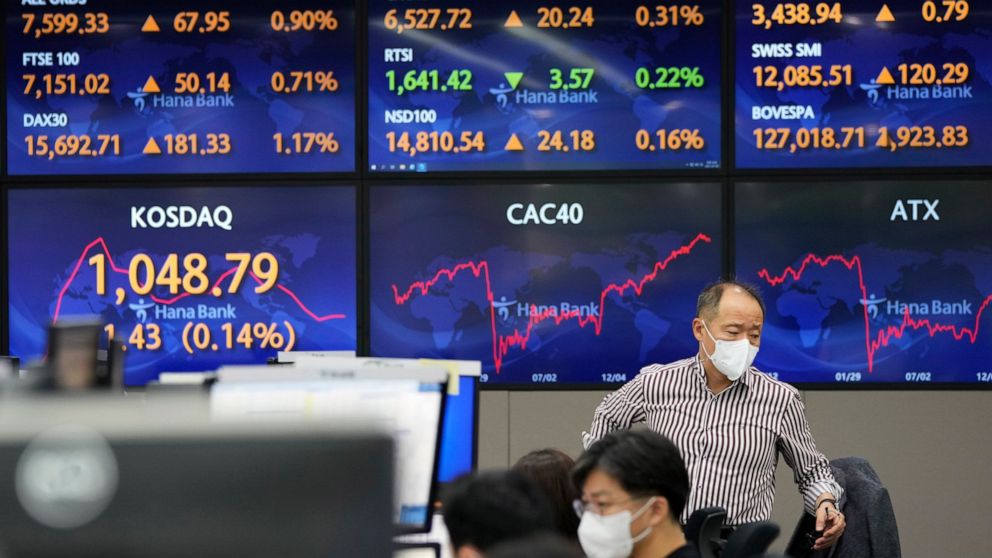Tech companies help pull stocks broadly lower on Wall Street
Stocks fell broadly on Wall Street Thursday as traders turned cautious following a series of record highs for major U.S. indexes
BEIJING — Stocks were broadly lower Thursday, as bond yields continued to fall and investors turned cautious after the market hit a series of record highs last week.
The S&P 500 index fell 1.1% as of 11:37 a.m. Eastern. The Dow Jones Industrial Average fell 323 points, or 0.9%, to 34,357 and the Nasdaq composite was down 1.3%.
Technology companies were having some of the biggest losses, which helped pull the Nasdaq composite down more than the broader market.
The yield on the 10-year Treasury note fell to 1.30% from 1.32% a day earlier. The benchmark yield, which is used to set rates on mortgages and many other kinds of loans, has been falling steadily in recent weeks as traders shift money into bonds. The 10-year yield traded as high as 1.74% at the end of March.
The bond market has been signaling concerns over the strength of the recovery for months, specifically that it may have peaked and is now leveling off to a steadier pace. The stock market has largely ignored those signals, analysts said, but could be coming around to that message amid struggling job growth and lackluster economic reports.
The number of Americans filing for unemployment benefits rose slightly last week even while the economy and the job market appear to be rebounding from the coronavirus recession.
Thursday’s report from the Labor Department showed that jobless claims increased by 2,000 from the previous week to 373,000. Weekly applications, which generally track the pace of layoffs, have fallen steadily this year from more than 900,000 at the start of the year.
Investors are also gauging the potential impact from COVID-19 variants stymying a resurgence in commerce and travel. Fans are banned from the Tokyo Olympics following a state of emergency aimed at containing rising coronavirus infections in the capital.
Part of the sharp drop in long-term bond yields could also be attributed to investors quickly reversing bets that they would continue rising as the economy continued its sharp recovery.
Investors have swung between enthusiasm about an economic recovery and unease that the Fed and other central banks might roll back stimulus to cool pressure for prices to rise.
Minutes from the Fed’s June meeting showed officials are moving closer to reducing bond purchases, though most analysts don’t expect a reduction until late this year. At that meeting, policymakers said they planned to raise interest rates as soon as 2023, earlier than previously expected.
Investors will be turning their attentions to corporate earnings starting next week, when the major banks like JPMorgan Chase, Goldman Sachs and Bank of America start report their results. Banks tend to be a proxy for the overall economy, so investors will be analyzing the reports closely and listening to what banks say about the status of lending and spending as the recovery continues.
![]()


